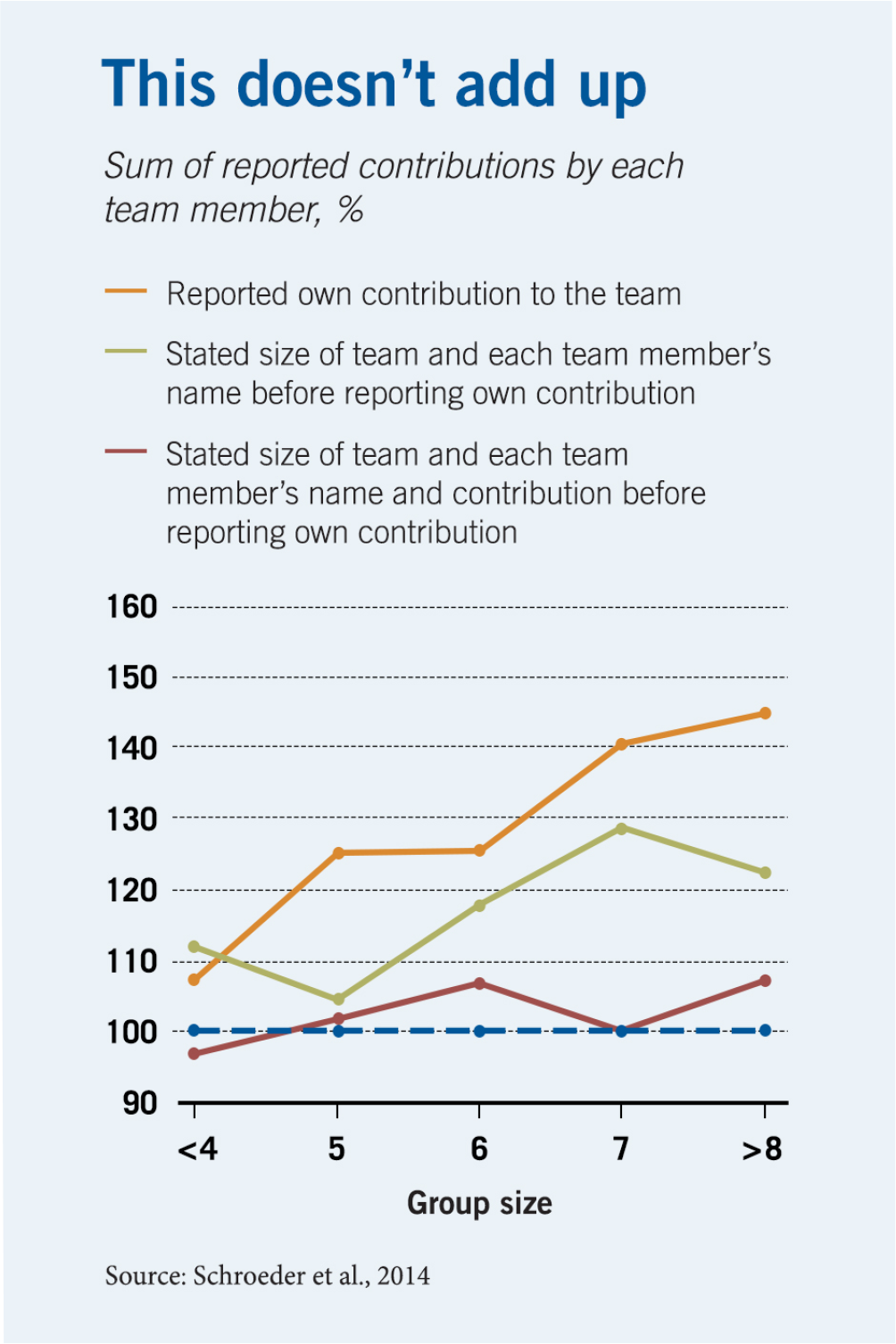
How to Set a Better Budget
Accounting for atypical costs such as car repairs and medical bills can make consumers’ spending estimates more accurate.
How to Set a Better BudgetWhy teams think they’re giving 140 percent
People are more likely to think they’ve contributed more than their share to a project as groups get larger

As groups get larger, other people’s contributions may be more easily overlooked.
Juliana Schroeder, Eugene M. Caruso, and Nicholas Epley, “Many Hands Make Overlooked Work: Overclaiming of Responsibility Increases with Group Size,” Academy of Management Proceedings, January 2014.

Accounting for atypical costs such as car repairs and medical bills can make consumers’ spending estimates more accurate.
How to Set a Better Budget
Unfortunately, money’s much more than a tool for survival.
Why We Are So Cash Conscious
The expectation of symmetry in social relationships can influence behavior and even deter crime.
Line of Inquiry: Anuj K. Shah on Why Learning about Others Makes Us Feel Less AnonymousYour Privacy
We want to demonstrate our commitment to your privacy. Please review Chicago Booth's privacy notice, which provides information explaining how and why we collect particular information when you visit our website.